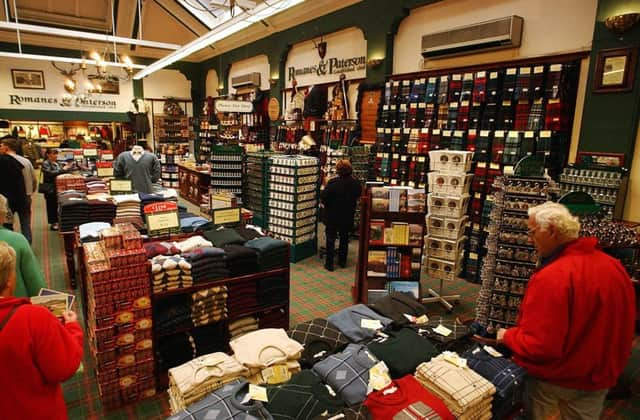Edinburgh Woollen Mill mislabelling trial media ban overturned


The firm is accused of falsely claiming scarves were 100 per cent cashmere on two occasions in 2014. Although a trial began at Dumfries Sheriff Court last month, reporting restrictions were in place, with the company concerned that adverse publicity would affect its trade in the lead-up to Christmas. But the ban has been overturned following an application on behalf of the BBC and ITV Border.
The firm, based in Langholm, denies mislabelling the scarves. The alleged offences, brought under the Textile Products Regulations 2012, are said to have taken place at the company’s store in Church Place, Dumfries, one of 265 high street shops.
Advertisement
Hide AdAdvertisement
Hide AdSusan Duff QC, for the accused, argued against the application on behalf of the broadcasters to revoke the ban, arguing that publicity could affect the evidence of witnesses who are yet to come to court.
She aid: “The accused has a legitimate concern about its business and employees. Now is the busiest time of year for the purchase of cashmere.”
She added that reporting that the scarves were not 100 per cent cashmere could be “prejudicial to the legitimate interests” of the firm.
But Ronnie Clancy QC, for the BBC, argued that this being “the busiest time of year for Christmas orders” was an issue of reputation not covered by the Contempt of Court Act.
Sheriff George Jamieson agreed to revoke the interim order, allowing the case to be reported.
Previously, Alison Irving, 52, a trading standards officer at Dumfries and Galloway Council, told the court she had test purchased a blue tartan scarf in February 2014, and a red one four months later. Mrs Irving later had the scarves analysed at two different test labs – SGS UK and Intertek UK. It emerged she was acting on information from the Cashmere and Camel Hair Manufacturers Institute.
Mrs Irving said one scarf had been found to contain 84.4 per cent cashmere, while the other was 61.6 per cent cashmere, with the remainder made up of other wool fibres.
Under cross-examination by Ms Duff, Mrs Irvingsaid it was “odd” that the results received from each of the labs had been different from each other.
Advertisement
Hide AdAdvertisement
Hide AdThe witness confirmed that after sending Edinburgh Woollen Mill a sample, the company sent back results from another test lab showing that both scarves were found to be 100 per cent cashmere.
The trial continues.